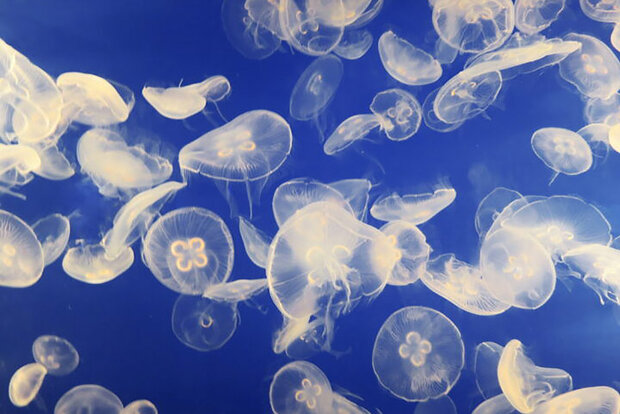Ocean biogeochemical fingerprints of fast-sinking tunicate and fish detritus

Some marine organisms sink faster than others. Credit: NOAA

Some marine organisms sink faster than others. Credit: NOAA
Marine ecosystems play a critical role in the global carbon cycle through the food web regulation of air-sea carbon fluxes and the transfer of particulate matter from the upper oceans to depth. Recent evidence has suggested that the detritus from fishes and gelatinous zooplankton, specifically the pelagic tunicates such as salps and pyrosomes, may have a disproportionate impact on the ocean’s biological pump due to them sinking approximately ten times faster than bulk detritus. These fluxes result in increased sequestration of particulate carbon and nutrients into the deep oceans, but their impact on biogeochemical cycles at depth is poorly understood.
The authors investigated the sensitivity of deep ocean carbon, oxygen, and nutrient cycles to fast-sinking detritus from tunicates and fishes. They found that the fast-sinking detritus decreased surface productivity and export, as well as the size of ocean oxygen minimum zones (OMZs).
This has not previously been investigated in a global ocean biogeochemical model. For this study, the authors incorporated fast-sinking detritus from pelagic tunicates and fishes into a modified version of GFDL’s ocean biogeochemical model COBALT (GZ-COBALT). These results highlight potential missing gaps in the representation of the ocean’s biological pump, and how incorporating previously under-studied mechanisms for fast transfer efficiency of detritus may improve model representations of OMZs and water column denitrification.